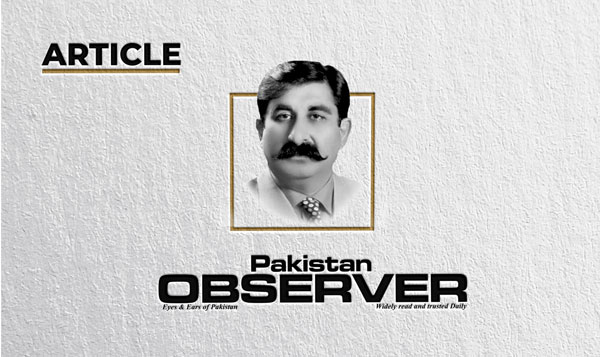Jiang Zemin and modern China
JIANG Zemin was the paramount leader of China from 1989 to 2002. He was the core leader of the third generation of Chinese leadership, one of only four core leaders alongside Mao Zedong, Deng Xiaoping and Xi Jinping.
Jiang led China throughout the 1990s and into the early 2000s, leaving a lasting impact on the country’s politics and foreign relations.
Jiang kept the momentum of reform and opening up after the brief setback of the late 1980s.
He and Premier Zhu Rongji pushed for China’s entry into the (WTO) through the reform of the state-owned enterprises and the mending of fences with the US.
His theory of “Three Represents” expanded the membership of the (CPC) and fundamentally changed the party structure while promoting entrepreneurship in China.
Jiang represented the core of the party’s third generation of leadership. He ruled in the capacity of the president of China for two terms, from 1993 to 2003. He served as the general secretary of the party from 1989 to 2002, then as chairman of the Central Military Commission from 1989 to 2004.
He excelled at handling crises and rose to power within the party at a moment of domestic turmoil: The 1989 Tiananmen Square protests.
His political savviness and people skills impressed Deng, then China’s top leader, who picked Jiang as his successor.
China joined the WTO in 2001, which is perhaps Jiang’s most important legacy. Jiang was not intimidated by fluctuations in global markets and encouraged Chinese companies to go out and use global markets to serve China’s development needs.
He appointed Zhu Rongji, who became China’s economic reform tsar, to implement a wide range of economic reforms, the most important of which included reforms to state-owned enterprises, foreign exchange management, the real estate and banking sectors. Jiang initiated China’s reform and opening up. He was the leader who practiced it.
By prioritizing the country’s participation in globalization and domestic economic reform, Jiang changed China from being one of the world’s poorest countries to the world’s factory, and he paved the way for China’s golden era of double-digit growth.
Jiang’s legacy goes beyond China’s economic miracle. He also reformed the military and prepared for the modernization of the Chinese army.
Most profoundly, he ordered the PLA and armed police to cease all business activities in 1998, banning them from commercial ventures that they had profited from for years by owning properties.
He and many Chinese officials believed the lucrative business operations had hampered efforts to modernize the PLA, at that time the largest and most inefficient militaries among major countries.
China was diplomatically isolated and at a crossroads about its future after the 1989 Tiananmen Square crackdown.
The reform and opening-up policy initiated a decade earlier by Deng Xiaoping was in jeopardy. It was at this juncture that Deng handpicked Jiang, then party secretary of Shanghai, to be the new CPC General Secretary.
Deng’s 1992 Southern tour jumpstarted the stalled reform process. Aided by the capable Premier Zhu Rongji (then first vice premier), Jiang kept the momentum of reform and opening up throughout the 1990s.
With a leader in Beijing that appeared to appreciate Western cultures, foreign investment flooded into China, turning it into the world’s factory.
During Jiang’s term as the CPC General Secretary from 1989 to 2002, China’s economy tripled in size, eventually overtaking Japan as the world’s second largest economy in 2010.
Jiang proved to be skillful, outmaneuvering myriad political rivals and consolidating his power over the party and military in a few years.
This culminated in his designation as the core of the PRC’s third generation of leadership since 1949. He installed key allies and proteges throughout the party and government and headed the powerful Shanghai clique, even after retirement.
Relations between the US and China were at an historic low point after 1989. Though tension began to thaw in the early 1990s, the relationship suffered a heavy blow during the 1995-96 Taiwan Strait crisis. Differences over human rights and trade also hampered relations. Bill Clinton paid a visit to China in 1998.
It was during this visit that Clinton uttered the US’ “three noes” policy regarding Taiwan: not supporting independence for Taiwan; not supporting any solution that creates “two Chinas” or one China and one Taiwan; and not supporting Taiwan’s admission to organizations where statehood is a requirement for membership, such as the UN.
The “three noes” was considered a concession to Beijing and was criticized by many in Washington and Taipei.
Starting in late 2002, Jiang handed over the leadership titles to his successor, Hu Jintao, first as the party boss and then as President in 2003, completing the first orderly power transfer in the PRC.
However, he retained his Central Military Commission chair position until 2005 and, even after his official retirement, continued to exert political influence from behind the scenes, including over the selection of present leader Xi Jinping.
Other notable achievements of China during Jiang’s tenure include regaining sovereignty over Hong Kong and Macao, weathering the 1997-98 Asian financial crisis, winning the bid to host the 2008 Olympics in Beijing, and most importantly, joining the WTO in 2001.
One may disagree with his policies, many world leaders remember Jiang fondly. UN Secretary General Antonio Guterres called Jiang “a steadfast advocate for international engagement” and recalled his “personal warmth and openness.” Bill Clinton in his memoir said Jiang was “intriguing and dignified.” He will be remembered as a leader who paved the way for China’s emergence as a global power.
Unlike Deng Xiaoping’s death in 1997, which helped Jiang to step out of Deng’s shadow and lead with more confidence and style, today Xi Jinping is in firm control of Chinese politics and foreign policy. China and the international community can’t forget the great Jiang Zemin.
—The writer is editor, book ambassador political analyst and author of several books based in Islamabad.









